Introduction
Ecotourism is defined as “responsible travel to natural areas that conserves the environment and improves the well-being of local people” (The International Ecotourism Society, 2012).
Ecotourism emerged in 80s with the aim of protecting the environment for the future generation.
Ecotourism focuses on promoting conservation, communities and sustainable travel.
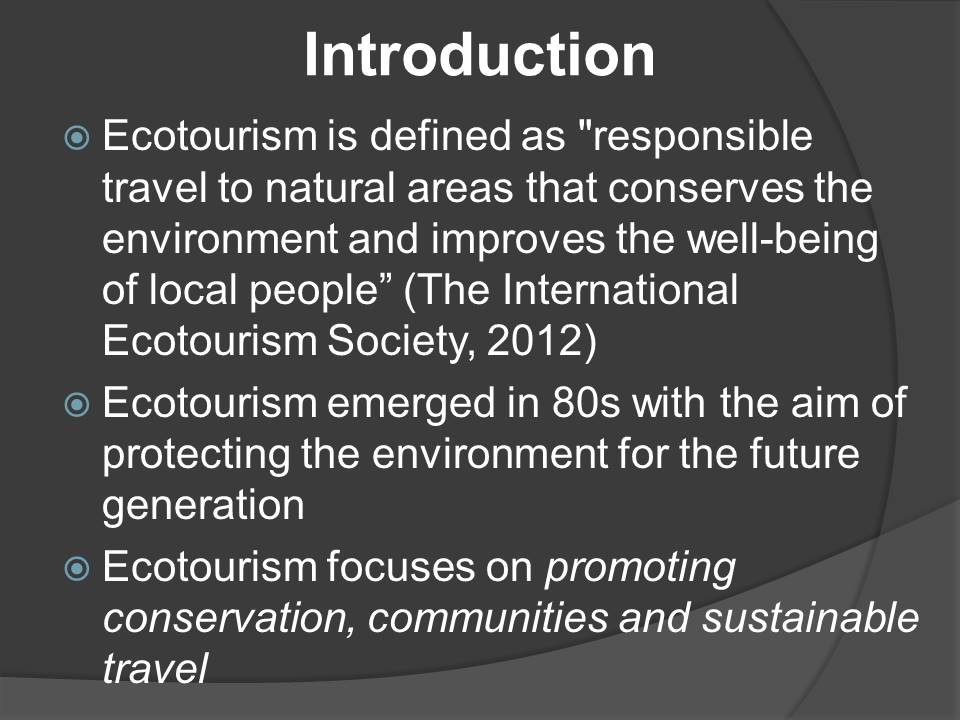
Principles of Ecotourism
- Minimize impacts on the environment and local communities.
- Create cultural awareness.
- Offer positive experiences for tourists and host communities.
- Offer financial benefits for supporting conservation efforts.
- Promote host countries’ political, environmental, and social climate.
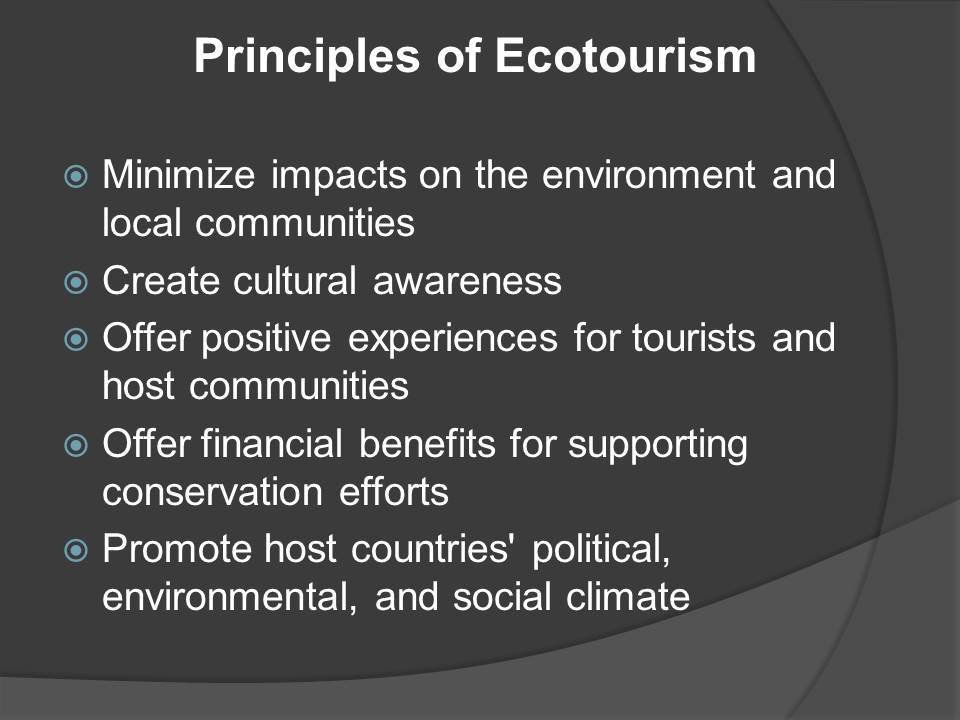
Current Trends in Ecotourism
The commonly held perception of ecotourism is that it is “a large and growing sector, both in terms of arrivals and income generated … the indicators however point to a decent, though less optimistic market” (Rawlinson, 2014).
Ecotourism is the most well-known, widespread and the oldest in tourism niches.
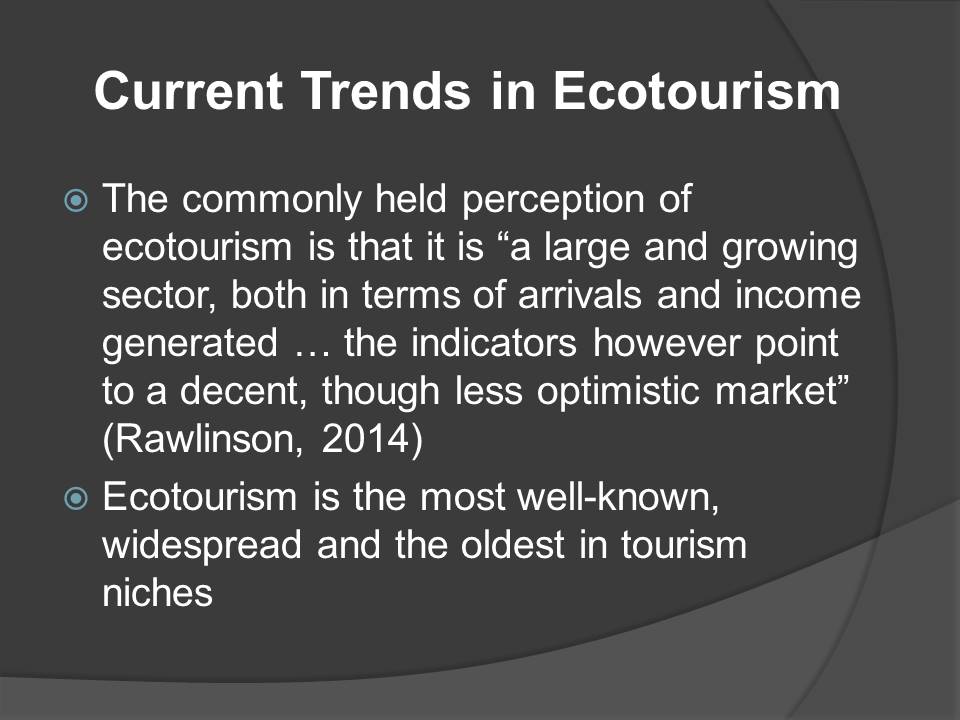
Trends
Ecotourism is practiced across a wide geographical range such as national parks, coastlines, rainforests and mountains.
Its longevity shows that ecotourism occupies a significant, well-established, stable and mature niche.
Ecotourism possesses the advantage of being the first and only form sustainable tourism.
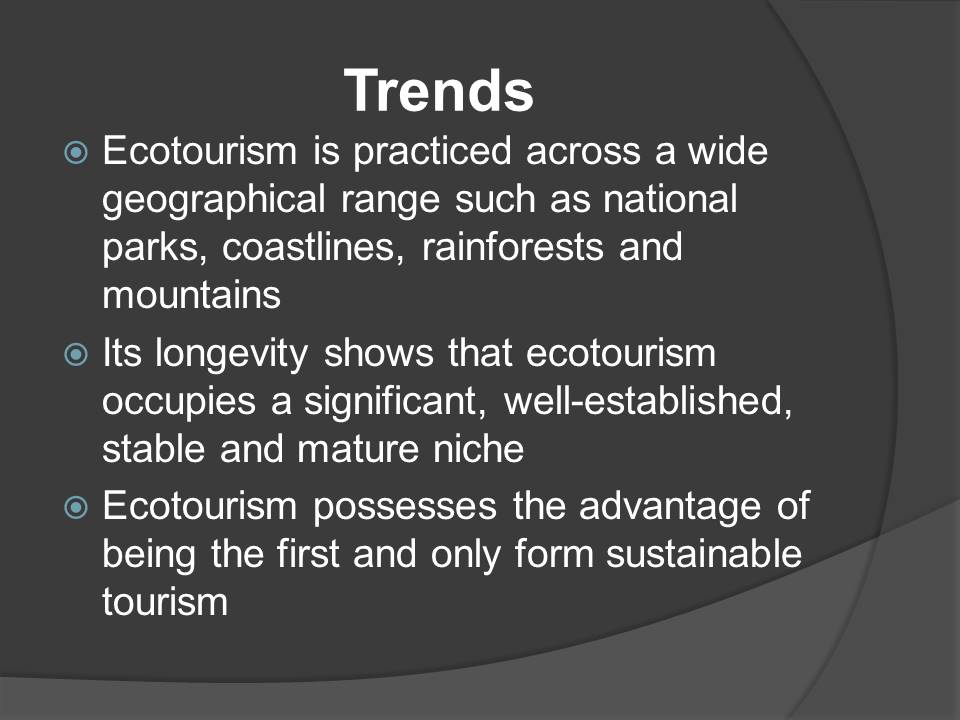
Trends: Ecotourism’s Economic Impact
It has generated $77 billion of the global market with double-digit gains.
Issues of global warming could accelerate the growth of the niche.
It spreads wealth and jobs in emerging economies than any other sectors globally (Center for Responsible Travel, n.d).
Tourists believe in protection of the environments and local communities.
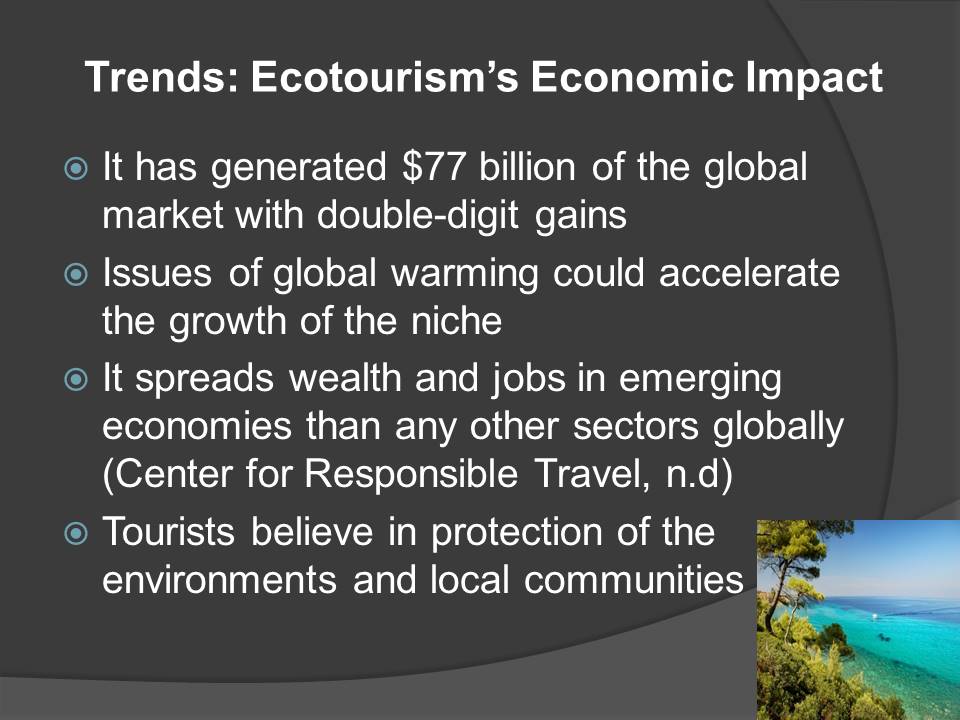
Global Growth in Tourism
- 1950: 25 million tourist arrivals.
- 2004: 760 million tourism arrivals.
- 2007: 903 million tourist arrivals.
- 2020 Forecast: 1.6 billion international arrivals.
- In 2007, ecotourism was responsible for 7 percent of the international market (Center for Responsible Travel, n.d).
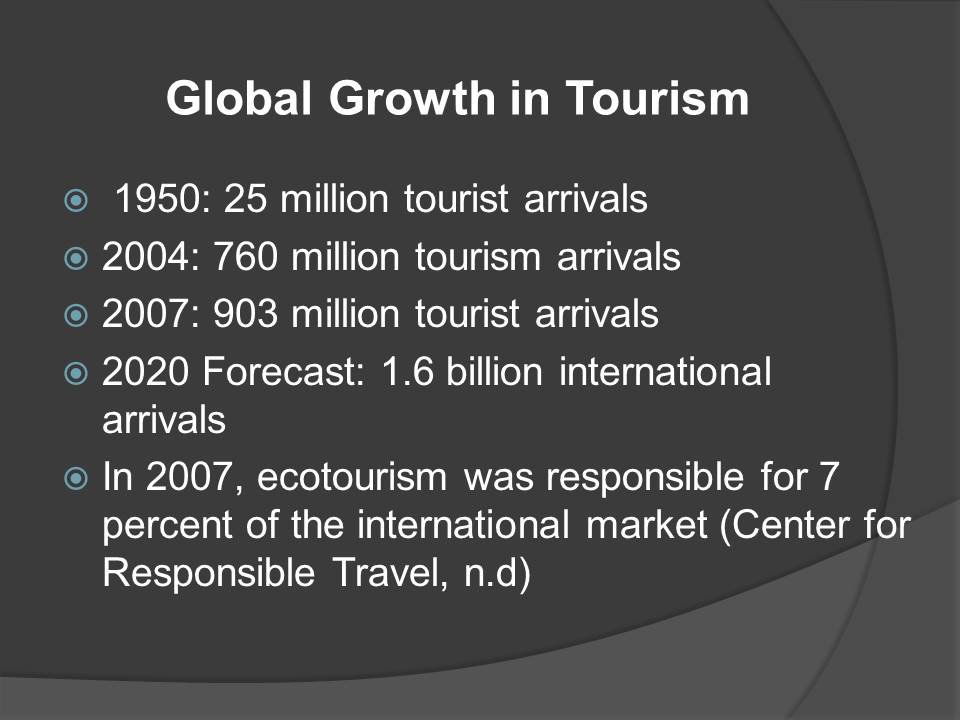
Improving Sustainability
Ecotourism service and product providers require a global standard of accreditation to differentiate ecotourism firms based on their levels of environmental commitment and responsibility.
There is a need to develop an environmental assessment plan for the niche with a focus on specific local conditions.
The niche requires guidelines and education.
A focused local control will enhance the growth of ecotourism.
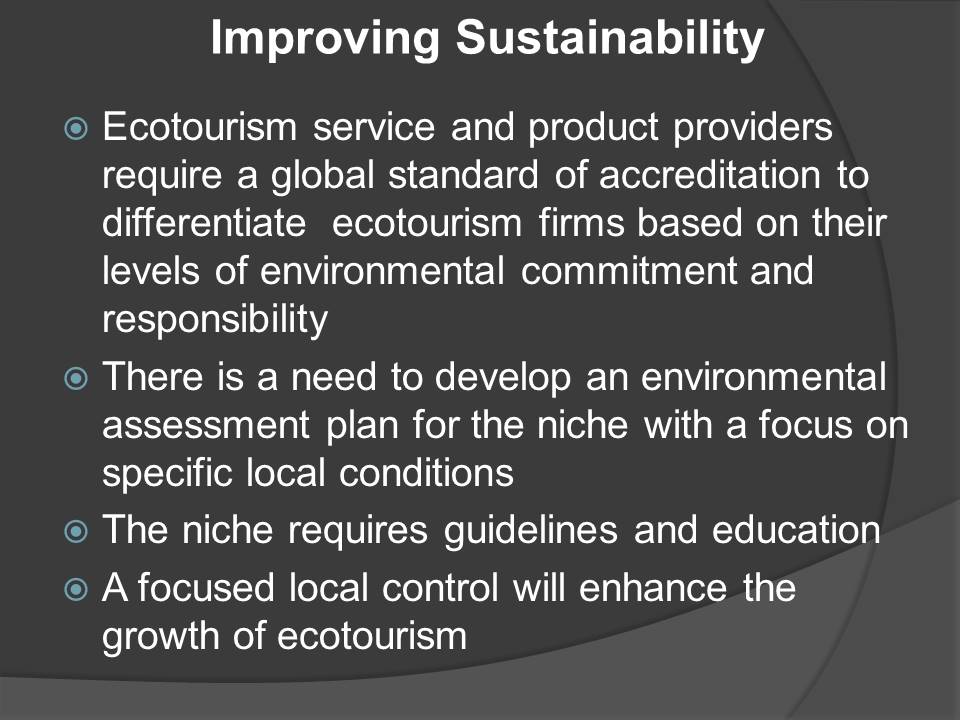
Impacts on the Industry in the Future
Long-term natural resource management.
Ecotourism activities and programs should protect natural resources.
Ecotourism will continue to grow as the number of environmentally conscious tourists rises.
Periods of recession negatively affect ecotourism.
Ecotourism products and services will continue to operate under strong brands with wider outreach for the security of the niche.
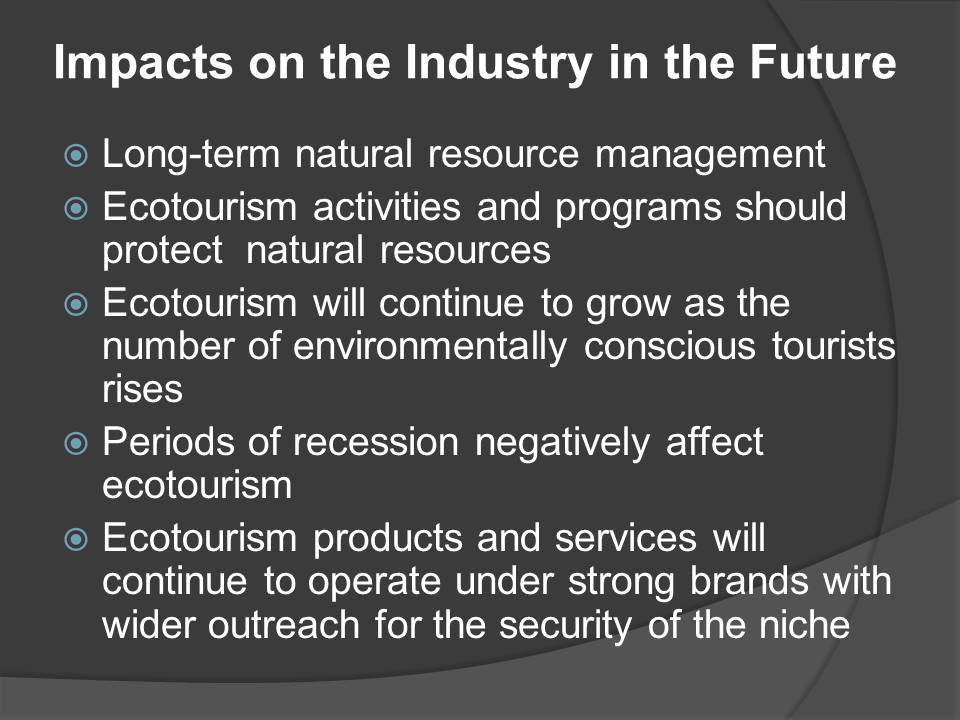
Criticism
Critics’ are concerned that movements of tourists are threats to ecosystems.
They claim that ecotourism is:
- Environmentally destructive.
- Economically exploitative.
- Culturally insensitive at its worst (Tuohino & Hynonen, 2001).
- Mislead tourists and manipulate their support for nature.
Ecotourism continues to evolve with new names, which do not necessarily reflect core principles of the term:
- Nature tourism.
- Sustainable Tourism.
- Low impact tourism.
- Responsible Tourism.
- Green tourism.
- Geotourism.
- Bio-tourism.
- Ecologically responsible tourism.
- Pro-poor tourism.
All these terms cause confusion to marketers and academics alike
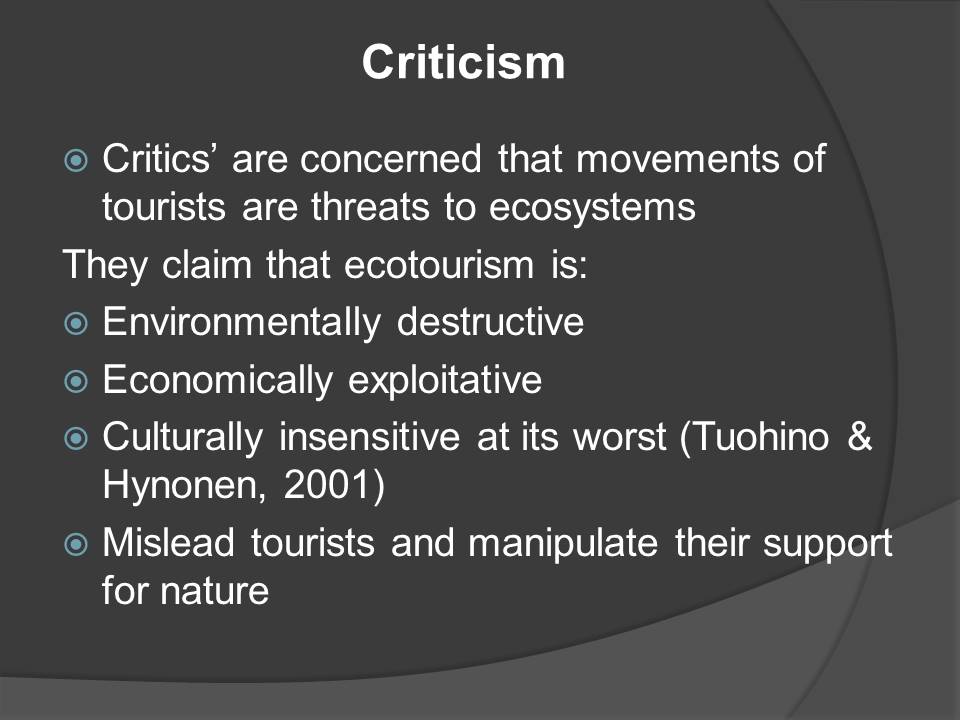
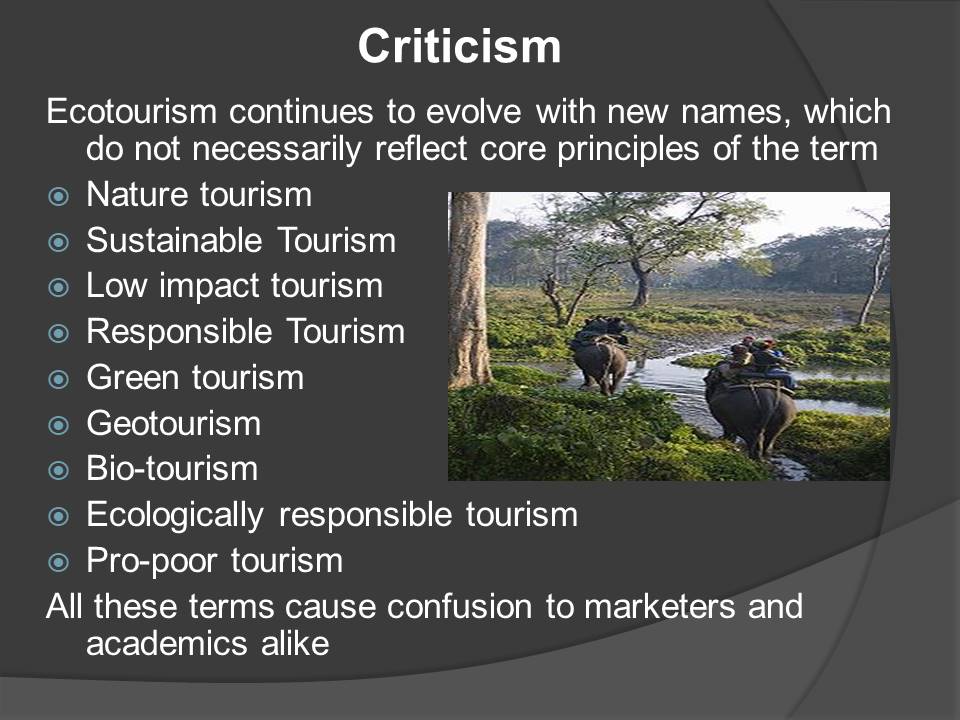
Recommendations
Ecotourism continues to grow as players find innovative ways to position their products and services.
Sustainability requires an industry-wide pursuit and therefore ecotourism must borrow from other practices.
The niche requires a strong, global brand to market its products and services globally for mass outreach.
Ecotourism should rise beyond the long-haul market and offer new destinations as well as new experiences for their customers.
The business community should adopt core elements of ecotourism and other products and services in the tourism sector to enhance growth and profitability.
The niche should promote three basic elements which are conservation, communities and education to attract environmental-friendly and sensitive tourists.
Ecotourism should offer its products and services to both small and large businesses with the aim of attracting mass market and meet the need to conserve the natural habitat simultaneously.
Ecotourism requires nature-based, sustainably management, conservation and environmentally friendly approach.
It needs constant evaluations of impacts on local communities (Schaller, n.d), the environment, management and possible threats to cultures.
There is a need for government and private entity partnership for conservation and promotion of the niche.
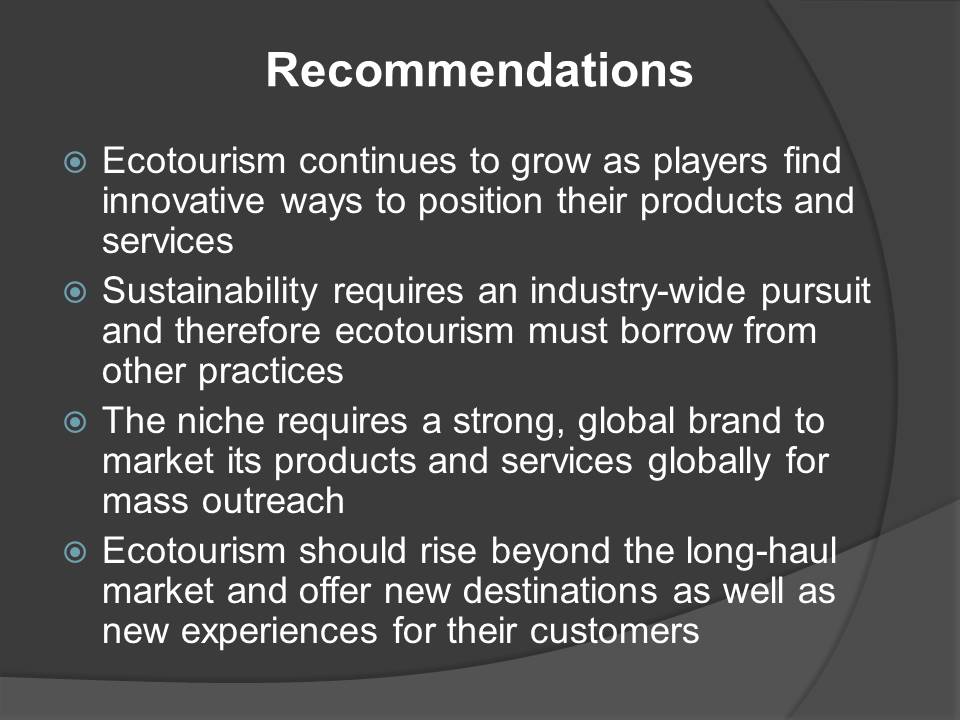
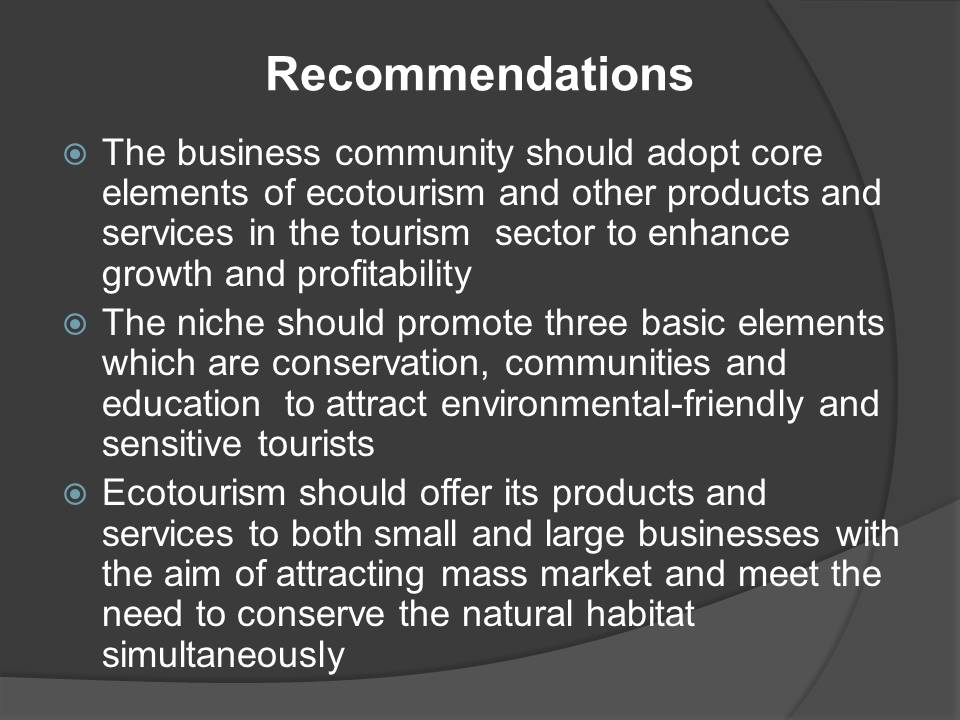
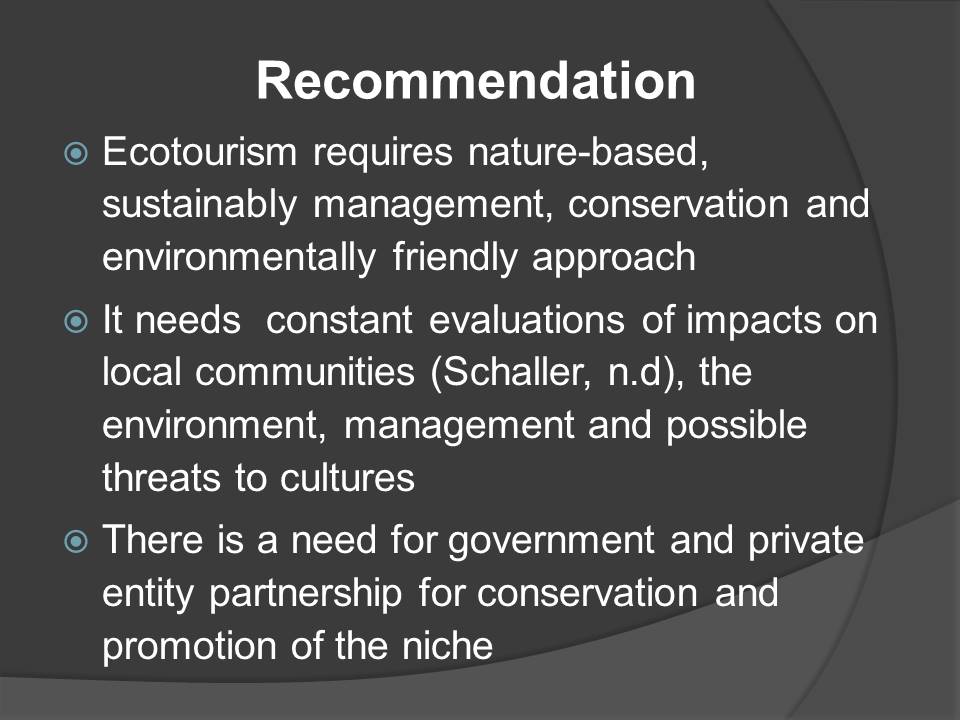
Summary
Ecotourism is unique niche in the tourism industry.
The niche’s core principles guide most aspects of its operations.
It continues to grow at a modest rate.
There are negative criticisms associated with ecotourism.
The niche requires a strong focus on its core principles and the need to promote partnership across the industry, with governments, private organizations and other stakeholders to achieve its sustainability efforts.
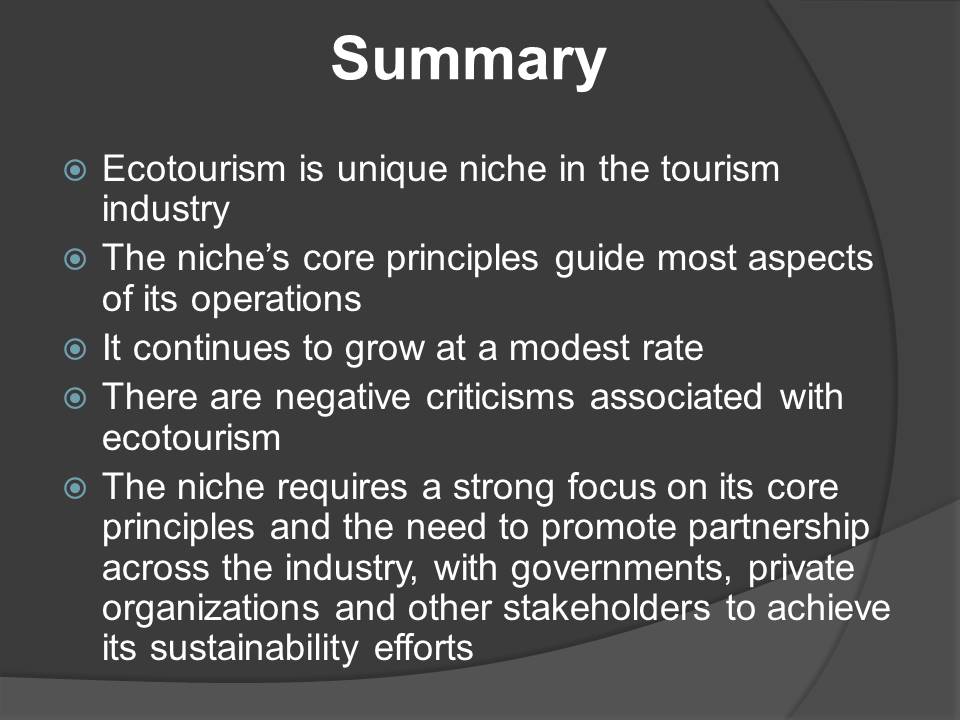
References
Center for Responsible Travel. (n.d). Responsible Travel: Global Trends & Statistics. Web.
Rawlinson, J. (2014).Trends in Ecotourism – April 2014.
Schaller, D. T. (n.d). Indigenous Ecotourism and Sustainable Development: The Case of Río Blanco, Ecuador.
The International Ecotourism Society. (2012). What is Ecotourism?
Tuohino, A., & Hynonen, A. (2001). Ecotourism—imagery and reality. Reflections on concepts and practices in Finnish rural tourism. Nordia Geographical Publications, 30(4), 21–34.